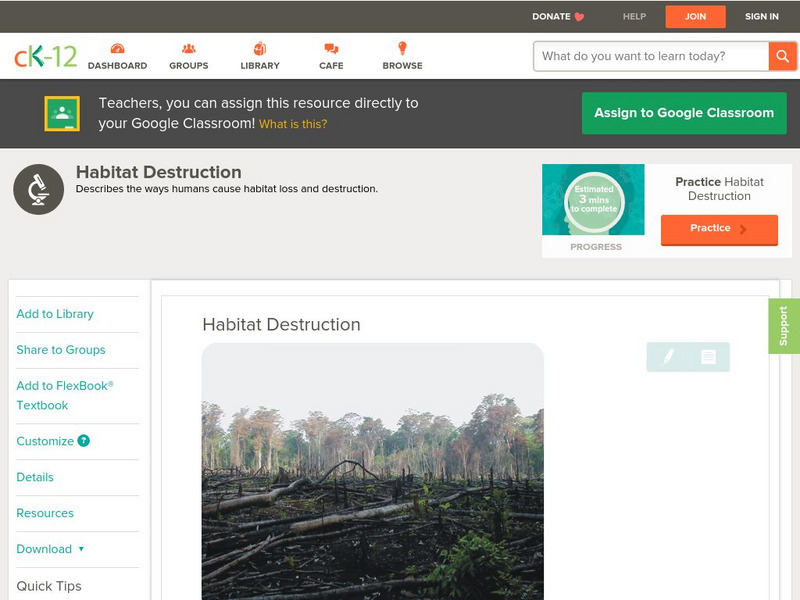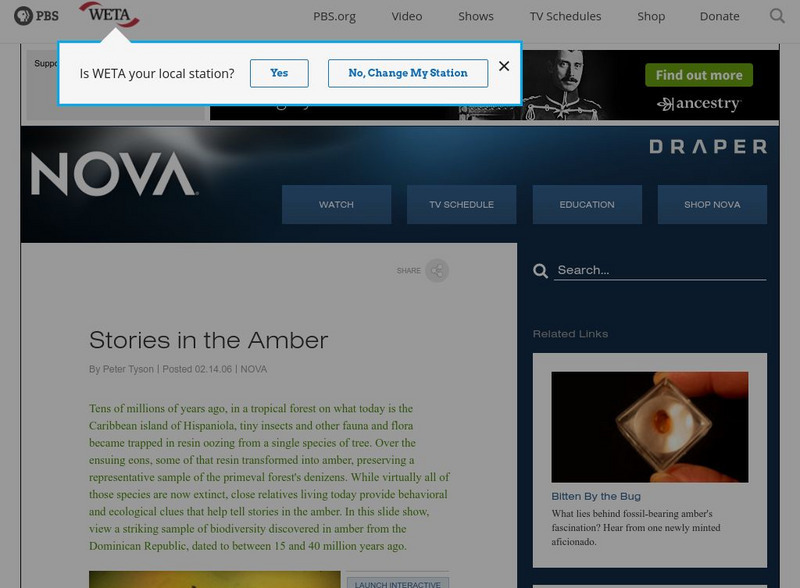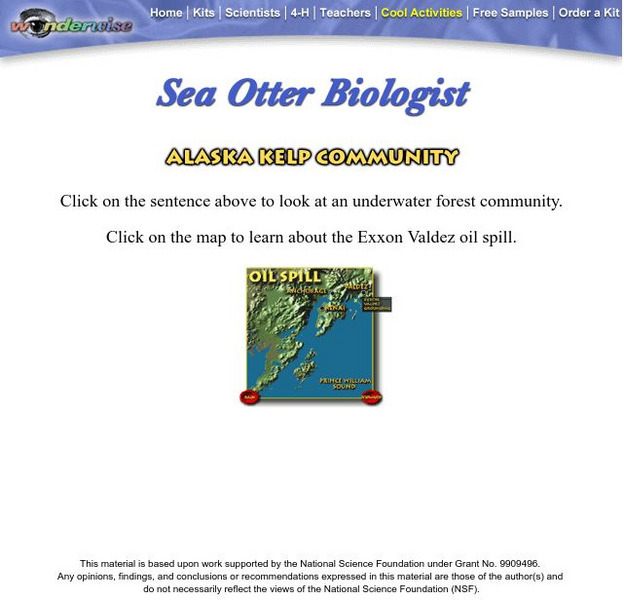Hi, what do you want to do?
CK-12 Foundation
Ck 12: Life Science: 12.11 Habitat and Niche
See how organisms each have their own role in the ecosystem.
National Institute of Educational Technologies and Teacher Training (Spain)
Ministerio De Educacion: Los Seres Vivos Y El Medio Ambiente
What is ecology? What is a biome? You will find the answers to these questions in this unit and also learn about the organization of the Biosphere, major Biomes of the earth and the adaptations of living things to limiting factors. It...
CK-12 Foundation
Ck 12: Life Science: Habitat Destruction
[Free Registration/Login may be required to access all resource tools.] From a human point of view, a habitat is where you live, go to school, and go to have fun. Your habitat can be altered, and you can easily adapt. Most people live in...
Scholastic
Scholastic: Study Jams! Science: Ecosystems
A video and a short multiple-choice quiz on the topic of ecosystems, covering biotic and abiotic factors, and the roles organisms play in an ecosystem.
Sea World Parks & Entertainment
Sea World: Biodiversity
Depicts biodiversity with a brief narrative. Includes vocabulary, bibliography, and one activity. Subject matter at an upper intermediate grade level or higher.
US Environmental Protection Agency
Epa: A Kids Adventure Story
This cartoon describes what the EPA's Superfund is and how water can become polluted. A lab experiment with Q&A is included.
University of Missouri
Microbes in Action: Classroom Activities: Composting by Microbes
A science experiment to observe how materials decompose over time, By recording the smell, appearance, and movement of materials over three weeks, students will be able to make conclusions about their decompositions. Students will also...
abcteach
Abcteach: Earth Day Activities
[Free Registration/Login Required] How can you treat the earth with more respect? Check out this resource featuring links to elementary activities to celebrate Earth Day. You will find word searches, crossword puzzles, reading...
United Nations
Unesco: Canada: Biosphere Reserves
Lists sixteen biosphere reserves in Canada that have been designated as such by the United Nations Educational, Scientific and Cultural Organization. Each ecosystem is described, along with ecological and socio-economic characteristics...
BioEd Online
Bio Ed Online: Can Nutrients in Water Cause Harm?
Many different kinds of organisms live in water. Excess nutrients can cause over-abundant growth of some organisms living in water and non-point source pollution is a major threat to water supplies in the United States. In this lesson...
PBS
Pbs Teachers: Volcanoes of the Deep
Discuss how individual organisms and groups of organisms interact with each other, and research and classify symbiotic relationships between individual organisms of different species.
Other
Adopt a Pond Wetland Curriculum Resource
The Adopt-A-Pond Program was created by the Toronto Zoo for teachers looking for a guide to wetland issues and resources.
University of California
Ucmp: Introduction to Trilobita
One of the most famous fossil organisms, trilobites were once a complex group. Learn to tell them apart in this illustrated article that tells how they lived, their body structure, there place in evolution, and the like.
BiologyWise
Biology Wise: Understanding the Process of Biological Magnification
Biological magnification is the term used to described the increasing accumulation of substances in organisms as one looks at higher trophic levels in a food chain. When that substance is a toxin, such as a heavy metal or a pesticide,...
abcteach
Abcteach: Ponds
[Free Registration/Login Required] The abcteach directory contains sample pages from their pond unit for non-members. Handouts are in PDF format.
Sophia Learning
Sophia: Living Organisms and Their Environment: Lesson 2
This lesson will discuss the interactions of and interdependence among living things. It is 2 of 4 in the series titled "Living Organisms and Their Environment."
Sophia Learning
Sophia: Living Organisms and Their Environment: Lesson 3
This lesson will discuss the interactions of and interdependence among living things. It is 3 of 4 in the series titled "Living Organisms and Their Environment."
University of Michigan
University of Michigan: Global Change: The Flow of Energy: Higher Trophic Levels
This lesson addresses the following questions: What is the efficiency with which energy is converted from trophic level to trophic level? What are the differences between assimilation efficiency, net production efficiency, and ecological...
PBS
Nova: Stories in Amber
Like a time machine, amber fossils take us back in the earth's history to discover the plants, animals and ecological relationships of prehistoric ecosystems. This resource has several interesting pictures of a variety of Dominican...
TeachEngineering
Teach Engineering: Digital Mapping and Geographic Information Systems (Gis)
Geographic information systems (GIS), once used predominantly by experts in cartography and computer programming, have become pervasive in everyday business and consumer use. This unit explores GIS in general as a technology about which...
PBS
Pbs Learning Media: Super Salmon
This video segment from FRONTLINE/NOVA: "Harvest of Fear" explores genetic modification of salmon and possible consequences.
Other
Grace Communications: Food Print
An environmentally conscious group brings to light the relationship between food, water and energy, and the importance of sustainability. The site looks at issues such as animal welfare, social justices, food policy, the industrial food...
Other
Union of Concerned Scientists: Global Warming
This resource provides statistical evidence, backgrounders, FAQs, climate impact reports, and suggested solutions to the global problem.
University of Nebraska
University of Nebraska State Museum: Alaska Kelp Community
Discover the ecological relationships of six different organisms living in the Alaskan kelp community. The site also contains an interactive map showing the time line for the spread of the Exxon Valdez oil spill.






















